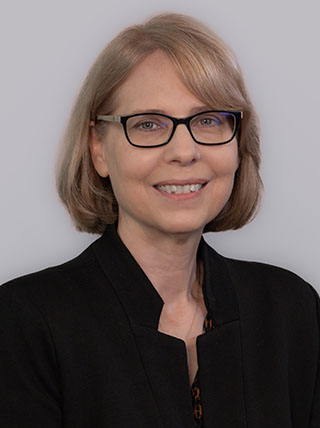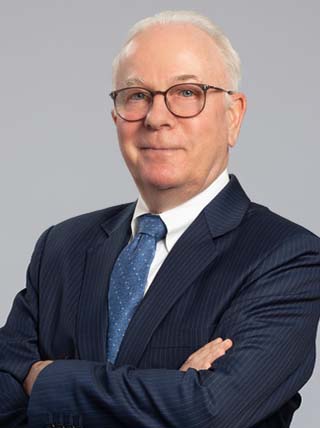
By Katie Essick, CHR Writer
In the view of the Center for Health Research’s new director, the roles of research scientist and administrative director are related: They are both “force multipliers.”
As an experienced research scientist and skilled administrative leader, Jennifer McClure, PhD, is poised to demonstrate that force.
Trained as a clinical psychologist, McClure realized early in her career that that she could have an even greater impact conducting research than through clinical work, and when she became an administrator, she realized the further potential of leadership to magnify her impact.
 Jennifer McClure, PhD
Jennifer McClure, PhD
CHR’s newest director and vice president for research at Kaiser Permanente Northwest Jeff Collins
Jeff Collins
Kaiser Permanente Northwest regional president
“Research can change practice, and it can change the world,” McClure says, and administrative leadership “allows me to have an even greater impact than I could through my own science because I get to support the great work of others.”
“I am both a research scientist and an administrative director,” McClure says. “Both of these roles are motivated by my personal mission in life, which is to improve health and health care with an emphasis on preventing and better managing chronic disease.”
And rather than give up one role for another, she is somehow able to do both. Her research has been continuously funded by the National Institutes of Health for more than 25 years. During those years, she has assumed increasingly challenging administrative roles, first with Group Health Cooperative and then Kaiser Permanente.
South to Northwest
As a child, McClure was affected by a family member’s struggle with chronic illness. The experience had a profound impact on McClure. “It made me want to improve care delivery and empower people to take better control of their own health through their lifestyle choices.”
McClure earned her master’s degree and doctorate from Louisiana State University. She completed a residency at the Veterans Administration Medical Center in Jackson, Mississippi, and a postdoctoral fellowship at M.D. Anderson Cancer Center (University of Texas) in Houston, then worked as a research associate at M.D. Anderson for several years.
In 1998, the Georgia native moved to Seattle to join the Group Health Center for Health Studies — later becoming the Kaiser Permanente Washington Health Research Institute (KPWHRI) in 2017 when Kaiser Permanente acquired Group Health.
“While I was born and raised in the south, I do consider myself a Pacific Northwesterner,” she told CHR employees in a presentation recently. McClure enjoys hiking and spending her free time in the mountains.
Since 2008, she has served as both an investigator and a director in various capacities at KPWHRI; most recently she led the institute’s Investigative Science Division. She is also a professor at the Kaiser Permanente Bernard J. Tyson School of Medicine in Pasadena, California and has affiliate appointments with the University of Washington and Fred Hutchinson Cancer Center, both in Seattle, Washington.
Research interests
As a researcher, McClure focuses on behavioral medicine and health services. She’s worked in many areas but is best known for her pursuit of more effective programs to help people quit smoking, delivered primarily through digital health technologies or by phone.
“We have a lot of room to improve upon our ability to help people quit smoking,” she says. “We need interventions designed not only for those who are ready to quit, but also interventions that can motivate and support cessation among people who are not yet ready to quit. My research addresses both of these critical needs.”
McClure also has collaborated on studies focused on HIV/AIDS, dietary change, breast cancer chemoprevention, and hypertension diagnosis, among other areas. She has authored or co-authored 150 journal articles and book chapters and been an author or co-author on nearly 170 presentations at scientific conferences.
Approach to leadership
In a presentation to CHR staff, McClure described herself as a servant-leader and a fervent proponent of “paying it forward” through mentoring others to help them advance their careers. “Mentoring is integral to advancing equity, diversity and inclusion, and helping everybody reach their full potential,” she said.
Expanding further, McClure said: “To me, diversity means allowing everybody to show up, regardless of our differences. Inclusion means including people when they do show up. And equity is about providing people the opportunities, the support and the resources they need to be successful when they have shown up.”
While many of her colleagues sought positions in academia, McClure was drawn to conducting research within large health care systems. “I knew I wanted to work for a learning health care system even before I even knew what that was. To me, a learning health care system is where research is informed by clinical practice and clinical practice is made better by the adoption of research. That’s exactly what KP offers.” In addition to her role as CHR’s new director, McClure will serve as the Kaiser Permanente Northwest vice president for research, reporting to Kaiser Permanente Northwest President Jeff Collins.
“We are thrilled to welcome Dr. McClure as our new CHR director and vice president for research,” said Collins. “She has proven to be a true leader in the field, and she recognizes the value research brings to the health care delivery system. Her many years of experience working at the Kaiser Permanente Washington Health Research Institute are an asset, and she understands how the Kaiser Permanente model is a huge benefit to the many researchers working within our system.”
McClure, who officially joined CHR on Sept. 16, will be the center’s fourth director since its founding 60 years ago. She will oversee an organization of nearly 200 people, including 32 investigators, with an annual budget of about $45 million.